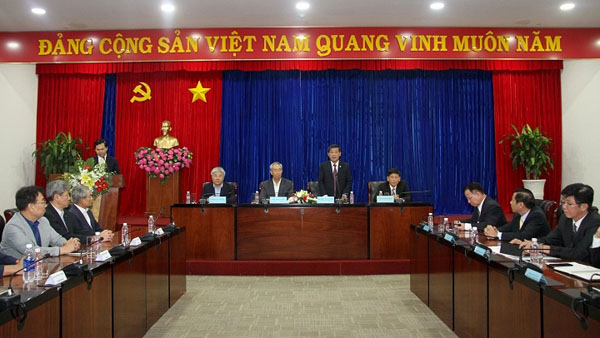


|
The meeting between Binh Duong leaders and Korean businessmen Chairman
of the provincial People’s Committee Tran Thanh Liem said that the locality
recorded an average annual growth rate of 8.5%. The industrial development
index increases over 10% per year, while the foreign direct investment (FDI)
stands at over US$27.9 billion, he cited.
He
recognised the significant contributions made by the Korean firms to the
local social-economic development, adding that the ROK came third among 62
countries and territories pouring investment in Binh Duong.
More than
630 enterprises from the ROK have been investing in Binh Duong with a total
capital of nearly US$3 billion, he noted.
In the
first six months of 2017, investment from the ROK continued to be poured into
16 new projects, whilst 17 existing projects registered to increase their
capital, with a total of US$306 million.
He
highlighted the ROK’s major investment projects, such as the car tire
production worth US$220 million of Kolon Industries and the apparel
production worth US$25 million of the Sewang garment-textile company.
Sung
Il-mo said that his group has an annual revenue of over US$5.5 billion and
specialises in manufacturing automobile spare parts.
Mando
will continue exchanging views with the local authorities after this field
trip to make investment in Binh Duong as soon as possible, he added.
The same
day, the Korean business delegation visited a number of local factories and
met with the leaders of Binh Duong Investment and Industrial Development
Corporation (Becamex).
|